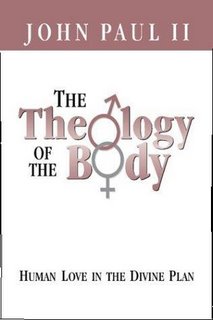 Achilles, after being mortally wounded by Paris
Achilles, after being mortally wounded by Paris(Twenty-eighth Sunday of the Year (B): This homily was given on October
Achilles was a hero of the Trojan War and one of the central figures of Greek mythology.
The story is told that, shortly after his birth, his mother Thetis tried to make him immortal by dipping him into the river
Consequently, he was always vulnerable to injury in that particular area of his body.
Achilles fought and won many battles over the years, but in the end he was killed when
Obviously this is where we get the term “Achilles’ heel”. We use it to identify a point of weakness; an area of vulnerability; a dimension of our character which is prone to some sin or failing.
In today’s Gospel story, the rich young man has his “Achilles’ heel” exposed by Jesus. For him, interestingly enough, it was not a weakness that involved a direct violation of one of the Ten Commandments. Apparently this young man had very little trouble obeying the precepts of the Decalogue: he hadn’t killed anybody (presumably that also means he hadn’t “killed” anyone’s reputation by calumny or detraction); he hadn’t committed adultery; he hadn’t engaged in pre-marital sex or masturbation or any other serious sin of the flesh; he hadn’t stolen; he hadn’t lied; and he hadn’t sinned grievously against his parents.
All in all, he was a pretty good, upright, moral person.
But, like everyone who suffers from the residual effects of original sin, he did have his spiritual Achilles’ heel: an excessive attachment to his possessions. And Jesus challenged him to deal with it! Our Lord said to him, “You are lacking in one thing. Go sell what you have, and give to the poor and you will have treasure in heaven; then come, follow me.”
We know, of course, what happened: he failed the challenge, and he failed it miserably! As St. Mark tells us, “At that statement [of Jesus] his face fell, and he went away sad, for he had many possessions.”
Sometimes a spiritual Achilles’ heel is obvious, as was the case with this rich young man. (His ‘heel’ was his materialism.) For other people it might be a weakness for a sin of the flesh (like the viewing of pornography on the internet). It might be an addiction to alcohol, or drugs, or gambling; it might be a problem of the tongue, such as gossip, or swearing, or lying, or taking the Lord’s Name in vain.
At other times, however, the Achilles’ heel is not so obvious. For example, most of you know that some
This woman’s spiritual Achilles’ heel, sad to say, is her relationship with her own child! Instead of allowing him to experience the negative consequences of his immoral—and illegal—behavior, and teaching him to be responsible for what he’s done, she’s actually teaching him to be evasive and irresponsible! By her actions she’s unwittingly giving him the message that his behavior in life really doesn’t matter. She’s saying to him, “Son, live by your own rules; do whatever you want. And don’t worry about the negative consequences of your bad choices. You can always find a way to escape from them if you want to.”
Now we have to be very careful about pointing fingers at this woman, because she’s not the only one who has an Achilles’ heel.
We all do! We might even have more than one!
But this is not an excuse for sin! Having an Achilles’ heel is never an excuse for sinful behavior! Remember, an Achilles’ heel is merely a weakness—and every weakness can be overcome by the grace of God.
Consider, for example, the great
What he did tell us, however, was that he begged the Lord to take it away three times and God refused. The Lord said No to that prayer.
Sometimes God does that.
But the Lord was still faithful: even though he refused to remove this weakness from Paul’s life, he did give the apostle the grace he needed to deal with it successfully! He said to Paul, “My grace is sufficient for you, for in your weakness [my] power reaches its perfection.”
Paul didn’t deny that he had a spiritual Achilles’ heel, even though he was a great apostle. He humbly admitted it; and, just as importantly, he dealt with it.
God wants us to follow that example.
If we think we’re better than
The proper way to approach our weaknesses is to admit them—as Paul did—and then to deal with them through prayer, and counsel, and medical assistance (when necessary), and the sacraments (especially the Eucharist and Confession).
Satan, like it or not, will always be shooting his arrows at our Achilles’ heel. That’s a fact. And he won’t stop until we take our final breath—so we had better get used to it! But those arrows can always be blocked—or pulled out after they strike—by the grace of God.
That’s the good news.
The only question is: Will we seek that grace and use it (like

